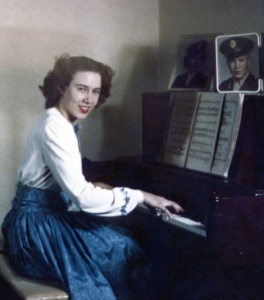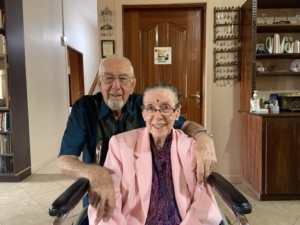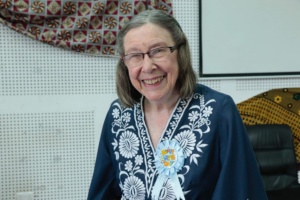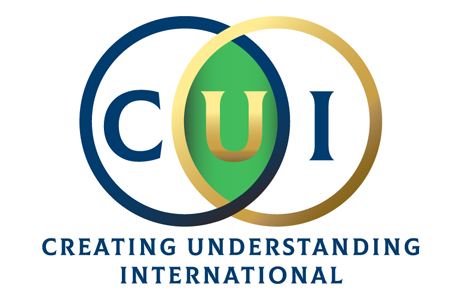The Long, Slow Goodbye: Understanding Alzheimer’s
Alzheimer’s and dementia are often described as a “long, slow goodbye.” Many people don’t fully understand what this means, especially if they haven’t been close to someone who has the disease.
A young friend asked recently, “What’s the big deal? If they just forget a few things, how does it harm them?” Well, it’s not just about forgetting a few things. It’s about the mind losing the ability to make connections, forgetting where rooms in the house are. Forgetting how to do simple tasks, like picking clothes, and eating. Putting together a coherent sentence. It’s about losing any memory of later years and retreating into childhood memories. It’s about hallucinations and losing control of your life. Your world, both mind and body, gradually shrinks into a tiny remnant of yourself.
My Mother’s Journey
It seems like a betrayal to talk about my mother’s decline. She had always had a remarkable memory, particularly for faces and names, greeting people she hadn’t seen for years with their correct names and remembering details about their lives. She was very organized, whether it was balancing the chequebook down to the last penny, and teaching me to do the same, or setting up the admissions, accounting and administration systems for a university.

My mother was an amazing musician. She played concerts on the organ, and piano for church, choirs, and concerts. She was an incredible accompanist, intuitively supporting the singers and making them sound good, even when they made mistakes! Her other delight was conducting choirs. Her enthusiasm for bringing out the music and joy from the singers was contagious. She would dance a bit and share her energy with them all. Music was her life-blood; doing any activity, such as driving or chores, while listening to the radio, she would unconsciously beat out the rhythm or conduct along.
Above all else, she loved God. Her whole life was given to serving others, all over the world. She knew her Bible thoroughly and loved using her creativity and music to bring it to life. She prayed for the work, for others, for her family, for her husband. She was a quiet but strong partner in ministry for her husband, my father.
Her distress started when she began to forget names—something that she had always excelled at knowing. We told her it was stress (they had just sold everything and moved across the world back to Kenya, in their 80s), change and reaction to all that was going on.
But she knew there was something deeper.

Over the next 3 years, those times of forgetfulness became more frequent, and tests showed the beginnings of non-amnestic MCI (Mild Cognitive Impairment), which often leads to Alzheimer’s. Over the next seven years, I watched the disease gradually steal away my mother’s abilities and memories, coupled with the muscle weakness of Parkinson’s.
The Effects of Alzheimer’s Disease
Alzheimer’s doesn’t just take away memories. It took away her ability to play the piano—something she had loved for decades. Her ability to play the piano was gradually taken away, both by her arthritis and also by her brain’s inability to connect the music in her mind with her fingers on the keyboard. Muscles began stiffening up, language began to scramble and fade. But she still loved to read, and would often read aloud from her Bible for hours, with perfectly clear speech. As dad would sit and talk to her about his day and happenings at work, she wasn’t always able to give him answers, but often, at just the right time, she would say, “We need to pray,” and then she would launch into a passionate prayer that was just right.
Some days I sat next to her with a hymn book and sang to her. Her eyes would move to the page and then she would join in the song with me, harmonizing as she always did. (Growing up she tried to make me an alto, like her, but I persisted in being a soprano! It made for lovely harmonies). She often got distressed and frustrated at not being able to communicate something that was bothering her; I began to sing to her and found her relaxing as she listened and began the familiar beating of the rhythm with her hands, the conductor’s motions coming out.

Music and God. What a beautiful combination. We struggled with her and searched hard to understand what was happening, looking for ways to make her comfortable, to help her through the valley. We tried to deal with the grief of losing her by inches. I can only imagine what it felt like inside her mind as she fought to hold onto understanding and communication. Music would open a path, even briefly. And communion with God, on that mysterious spiritual plane, allowed us to dwell together for a moment as well. Her joy is now full and her life is fully present in the music surrounding the throne of God.
Support and Resources
Watching my mother go through this journey was incredibly difficult. Alzheimer’s doesn’t just affect the person with the disease—it impacts families and caregivers too. The Alzheimer’s and Dementia Association of Kenya (ADOK) provides invaluable support to both sufferers and caregivers, offering resources, guidance, and a sense of community for those who are affected by Alzheimer’s.
If you or someone you love is dealing with dementia, ADOK can help you navigate this challenging path. From offering practical advice to emotional support, they are there for families in need.
A Story on Stage: “In Other Words”
In honour of my mother, I’ll be putting up the play In Other Words by Matthew Seager. The play follows the story of a husband and wife as they struggle with the emotional and physical toll of Alzheimer’s. It’s a powerful reminder of how this disease impacts not just the patient, but the caregiver as well. I hope you can join us to experience this moving portrayal of love, loss, and resilience in the face of Alzheimer’s.
Alzheimer’s is a disease that takes a piece of the person you love bit by bit, but with the right support, we can face the long, slow goodbye together.

Add Comment